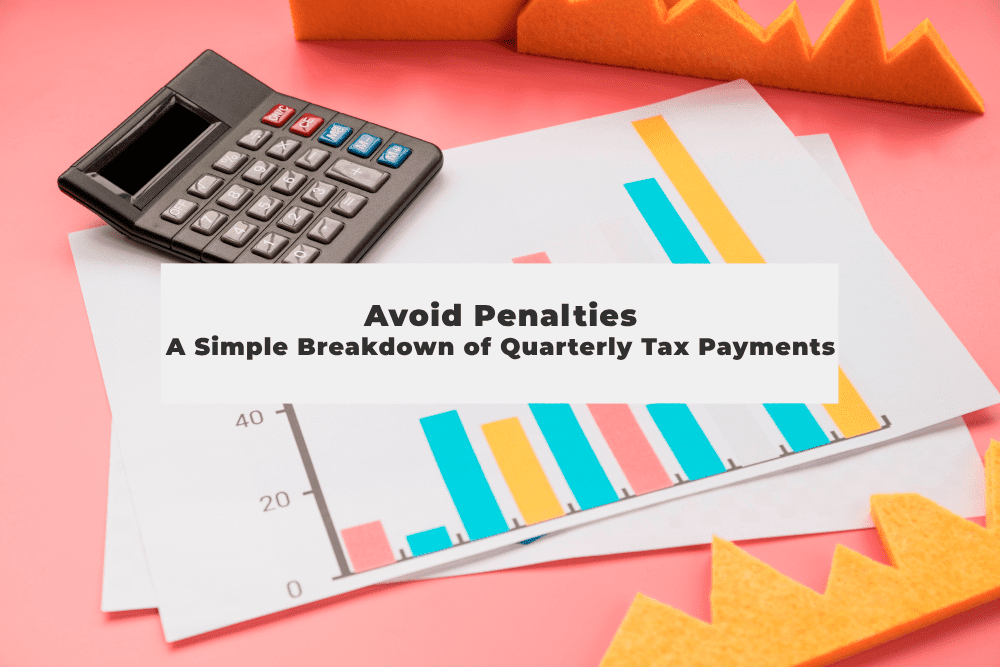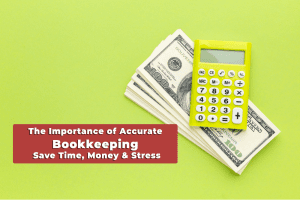Running a business comes with many responsibilities, including taxes. It’s not uncommon for businesses to face tax penalties due to simple mistakes or oversights. These penalties can add up quickly and impact your bottom line. Fortunately, understanding the common tax penalties and how to avoid them can help you save money and keep your business in good standing with the IRS.
In this guide, we’ll walk you through the most common tax penalties businesses face and provide strategies to avoid them. We’ll also touch on the importance of quarterly estimated taxes and how staying on top of these payments can help you avoid penalties altogether.
1. Understanding the Common Types of Tax Penalties
Tax penalties are financial charges imposed by the IRS when a business fails to comply with tax regulations. The most common penalties include:
- Failure to File Penalty: This penalty occurs when you don’t file your tax return by the due date, including extensions.
- Failure to Pay Penalty: When you don’t pay the taxes you owe by the deadline, even if you’ve filed the return, the IRS will impose this penalty.
- Underpayment of Estimated Tax Penalty: If your business doesn’t pay enough taxes throughout the year, usually through quarterly estimated tax payments, the IRS will issue an underpayment penalty.
- Late Payroll Tax Payments Penalty: As an employer, you’re responsible for withholding and paying payroll taxes. Failing to make these payments on time can lead to significant penalties.
2. How to Avoid the Failure to File Penalty
The failure to file penalty is one of the most common and can be easily avoided. If you’re unable to file your tax return by the deadline (typically April 15th), you can request a tax extension. A tax extension gives you additional time to file your return but does not extend the time to pay any taxes owed.
Key steps to avoid the failure to file penalty:
- File on Time: Always aim to file your tax return on or before the deadline.
- Request an Extension: If you can’t file on time, file for a free tax extension. Keep in mind that the tax extension only postpones the filing deadline, not the payment deadline.
Link to IRS Tax Extension Form: Request for Extension
3. How to Avoid the Failure to Pay Penalty
Even if you file your tax return on time, failing to pay the taxes owed by the deadline can result in a penalty. The IRS charges a failure to pay penalty for every month the tax remains unpaid after the due date.
To avoid the failure to pay penalty, make sure you:
- Pay Your Taxes on Time: Always pay the full amount owed by the deadline, even if you’re filing for a tax extension.
- Set Up a Payment Plan: If you can’t pay the full amount by the deadline, consider setting up an IRS payment plan to avoid penalties.
- Link to IRS Payment Plan: Set Up a Payment Plan
4. The Importance of Quarterly Estimated Taxes
For businesses, especially small businesses and freelancers, paying quarterly estimated taxes is crucial. The IRS requires businesses to make estimated tax payments if they expect to owe $1,000 or more in taxes at the end of the year.
Failing to pay these quarterly taxes can result in an underpayment penalty, even if you pay the full amount due when filing your annual tax return. This makes understanding the importance of quarterly estimated taxes essential for avoiding penalties.
Tips for avoiding quarterly estimated tax penalties:
- Know Your Payment Deadlines: Quarterly estimated tax payments are due four times a year. Make sure you mark these dates on your calendar.
- Estimate Your Taxes Accurately: Use last year’s tax return as a guide to estimate how much you should pay each quarter.
5. How to Avoid Payroll Tax Penalties:
If you have employees, you’re responsible for withholding federal income tax, Social Security, and Medicare from their wages, and for paying the employer’s portion of these taxes. Failing to deposit these taxes on time can lead to severe penalties.
Here’s how to avoid payroll tax penalties:
- Deposit Payroll Taxes on Time: Familiarize yourself with payroll tax deposit deadlines and make sure payments are made promptly.
- Use Payroll Software: Many businesses use payroll software to automate tax withholding and deposits, minimizing the risk of errors.
IRS Resource for Payroll Taxes: Employment Taxes
You may also like to read:
Avoid Penalties: A Simple Breakdown of Quarterly Tax Payments
As a small business owner, freelancer, or independent contractor, you may already know that paying taxes isn’t just…
Read More

6. Common IRS Penalties and How to Appeal Them
Sometimes, even when you’re diligent about filing and paying your taxes, the IRS may issue a penalty. The good news is that you can appeal these penalties under certain circumstances, such as reasonable cause (e.g., natural disaster or serious illness) or IRS errors.
Here’s what to do if you receive a penalty:
- Request Penalty Abatement: You can request penalty abatement if you have a valid reason for not complying with tax laws.
Link to Penalty Abatement Form: Request Penalty Abatement - Dispute the Penalty: If you believe the IRS has made an error, you can dispute the penalty by providing documentation that supports your case.
7. How Tax Penalties Affect Your Business Cash Flow
Tax penalties are more than just an added expense; they can significantly impact your business’s cash flow. Every dollar paid in penalties is money that could have been reinvested in your business.
Here’s how penalties affect your business:
- Reduces Operating Capital: Penalties take away from your available cash, limiting your ability to pay for necessary business expenses.
- Adds Financial Stress: Tax penalties can add unnecessary stress and may cause you to fall behind on other financial obligations.
- Damages Business Credit: If penalties go unpaid, they could result in liens or collection actions, which may damage your business credit.
8. Proactive Tax Planning to Avoid Penalties
The best way to avoid tax penalties is to engage in proactive tax planning. Here are some strategies to consider:
Work with a Tax Professional: Enrolled agents, like those at Taxfully, can help ensure that your tax returns are accurate, timely, and compliant with IRS regulations.
Track Your Expenses: Keeping thorough records of your business expenses will help you avoid underreporting income or overclaiming deductions.
Schedule Regular Tax Reviews: Reviewing your financials and taxes quarterly ensures you’re on track and minimizes the chances of surprises at tax time.
Conclusion
Avoiding tax penalties is essential for maintaining the financial health of your business. By staying aware of common penalties, making timely payments, and engaging in proactive tax planning, you can save your business from costly fines and unnecessary stress.
At Taxfully, we’re here to help you navigate the complex world of business taxes. Contact us today for assistance with tax preparation, quarterly estimated taxes, payroll services, and more. Let us help you avoid penalties and keep your business running smoothly.




